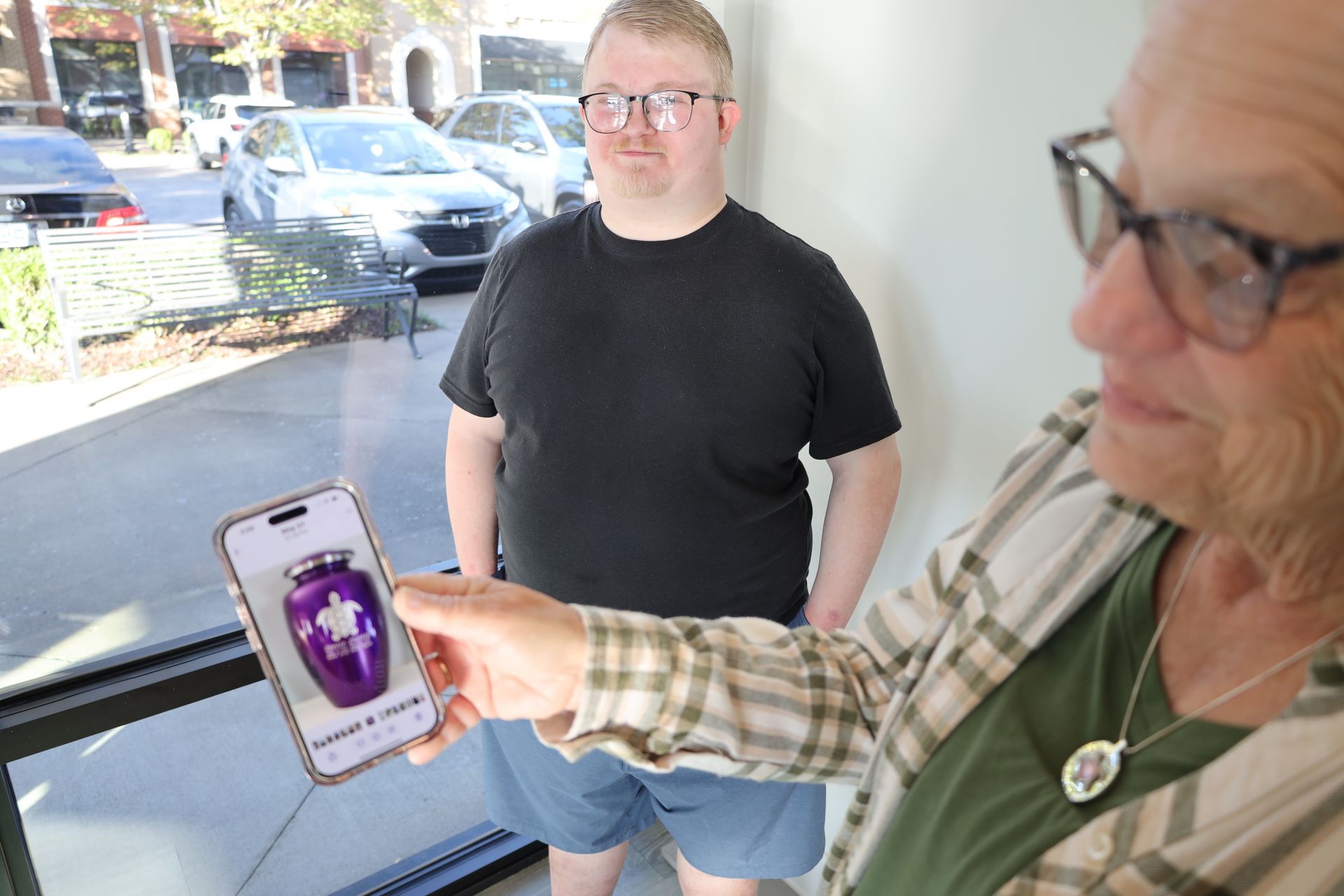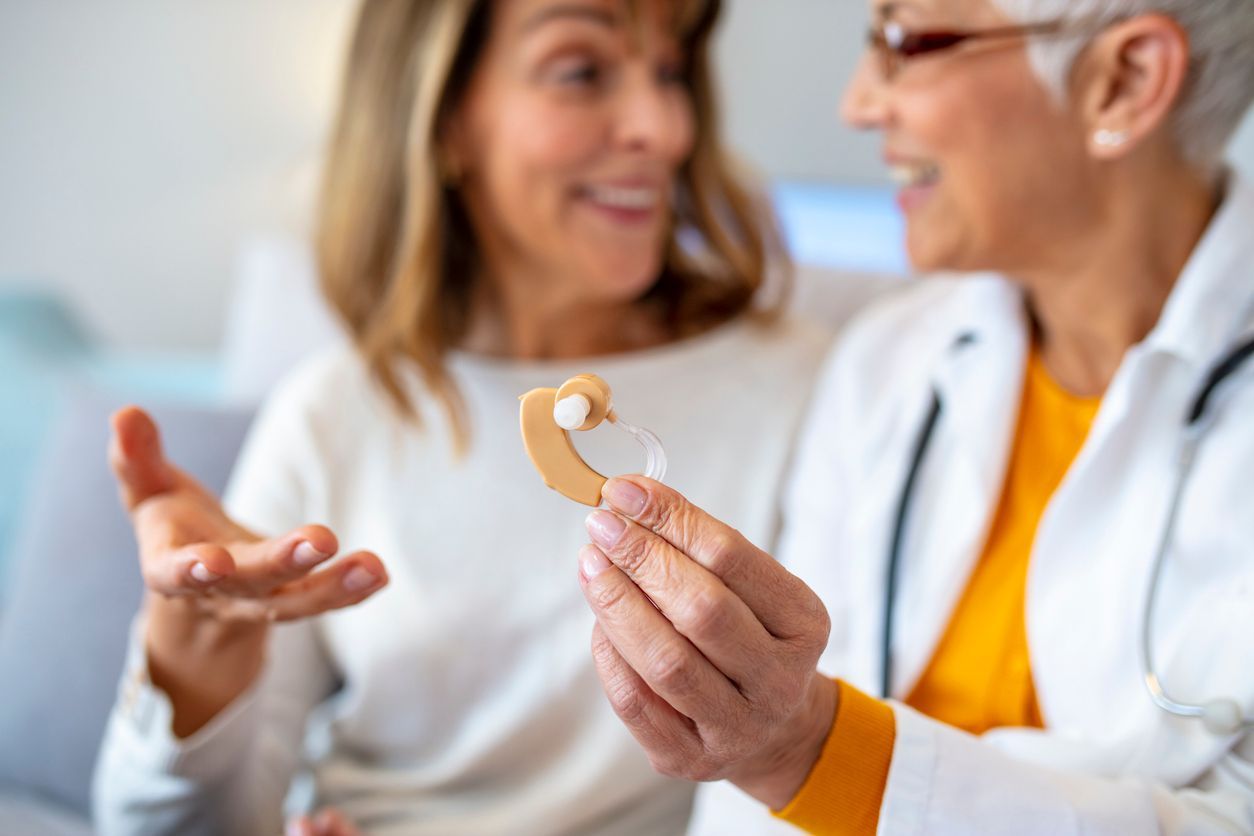Hidden Hearing Loss: Learn the Signs. Take Action.

Do you feel like you hear fine, but you struggle to understand speech when there is a competing of background noise, like at a large family gathering? You could have hidden hearing loss.

"With a hidden hearing loss, the brain is still able to process simple sounds resulting in the appearance of 'normal hearing,' but more difficult sounds like conversational speech can be harder for the brain to process."
-- Ali Carmichael, Au.D.
“A person’s sense of hearing connects them to the world around them and helps them stay
engaged with the people, places and events in their lives,” said Dr. Megan Johnson,
audiologist and owner of Johnson Audiology. “Yet many people discount their hearing,
ignoring the signs that something is amiss with their inner ear and waiting years to address
it. I see it every day in my practice; people who tell me they have been struggling in different
listening environments for 10 years or more. It disturbs me that people put off seeking
helping because of embarrassment, or fear or misunderstanding, especially now in an era
when help for hearing issues is so advanced and accessible.” Dr. Johnson continued, “Part
of Johnson Audiology’s mission is to bring education about hearing and hearing loss to the
forefront, teach people how important your sense of hearing is and smash the stigma that
some feel in regards to their hearing issues. Hearing loss is widespread; yet treatment is
right around the corner at your nearest audiologist. People don’t have to live with untreated
hearing loss anymore!”
How widespread is hearing loss?
Dr. Ali Carmichael, one of the 12 audiologists that makes up the team of hearing
professionals at Johnson Audiology, said, “More than 20% of the United States population
is affected by various types and degrees of hearing loss. That’s more than 65.5 million
people! Additionally, tinnitus, which is a constant or intermittent ringing, buzzing, or hissing
in the ears, affects more 30 million Americans.” Recent research has come out that states
that up to 13 million Americans without any degree of hearing loss also experience some
form of tinnitus. Through medical conditions, noise exposure, genetic conditions, or the
processes of aging, hearing loss can occur gradually or suddenly at any stage of life. The
inner ear, or cochlea, is composed of thousands of small hair-like fibers responsible for
sending hearing signals to the brain. One of the leading causes of hearing loss in people
under the age of 40 is due to noise exposure, which can cause major damage to the inner
ear leading to hearing loss and tinnitus.
What is hidden hearing loss?
Dr. Johnson said, “For most people with hearing issues, a basic hearing test, also called an
audiogram, reveals, in a very obvious way, the type and severity of a person’s hearing loss.”
Sometimes damage done to the inner ear, either by noise exposure or auto-immune
disorders, is not so transparent though. Dr. Johnson mentioned that in some cases
“damage can create a ‘hidden hearing loss’ where the hearing test shows normal hearing,
but tinnitus or difficulty hearing in a noisy environment is still a concern.” This damage
causes an incomplete signal being sent to the brain, which can lead to a familiar hearing
complaint where a person knows that something is being said but cannot understand the
actual words. The repeated noise exposure causes a breakdown of the hearing system in a
way that is not detectable by a standard hearing test; however, the damage can cause
enough inner hair fibers to be destroyed, which leads to the sensation of tinnitus but with a
lack of detectable hearing loss. Dr. Carmichael said, “With a hidden hearing loss, the brain
is still able to process simple sounds resulting in the appearance of ‘normal hearing,’ but
more difficult sounds like conversational speech can be harder for the brain to process. As a
result, communication often fails.” Long-term exposure to noise, even in small amounts, has
been shown to be one of the leading causes of hidden hearing loss and tinnitus.
Why is hidden hearing loss something to be concerned about?
The frustration a person feels when dealing with hidden hearing loss and tinnitus can lead
to social isolation and a decrease in social interactions. Also, because hidden hearing loss
is more difficult to diagnose, it may be overlooked, a person’s complaints and struggles
minimized, and their frustration grows. A university-trained audiologist is the professional
most equipped and skilled to recognize when a person might be struggling with hidden
hearing loss and to initiate the expanded testing that is necessary for diagnosis. A standard
hearing test with additional noise testing can help to identify the degree of difficulty a person
is having in noisy situations. Speech in noise testing, which includes repeating sentences as
the volume of background noise increases, can be done to help determine the amount of
difficulty someone is experiencing when processing sound with background noise present.
Dr. Johnson urged, “When visiting your audiologist, it is important to relay all symptoms
related to your hearing and balance. This will help your audiologist pick the correct tests and
formulate an appropriate treatment plan.” Important symptoms to relay if hidden hearing
loss may be a concern include:
·often hearing speech incorrectly
·feeling like you are struggling when listening in environments when background noise is
loud but you understand people well in quiet situations
·constant tinnitus, or
·feeling distracted, or even anxious, in difficult listening environments.
Advancements in technology make the difference
Dr. Carmichael said, “Treatment for hidden hearing loss continues to develop, and research
has shown that around 60% of patients with tinnitus say they experience some relief from
their symptoms while wearing hearing aids.” It also has been proven that the improvements
in directional microphones of hearing aids have helped to overcome communication
breakdowns in noisy situations. The advances in noise reduction in hearing aids have
developed to help overcome the volume of noise and help to focus attention towards the
important conversations with loved ones.
Dr. Johnson said, “Over the course of my 19-year
career as an audiologist, I have seen such advancements in technology. It’s these
advancements that have made the detection and treatment of hidden hearing loss possible.
It can be a real game changer for people.”
Knowledge about the structure and workings of the inner ear continues to progress, and a
better understanding of how damage to the inner ear creates different types and degrees of
hearing loss continues to develop. Additionally, hearing technology and treatment for
hearing loss is advancing by leaps and bounds. “At no other time in history have we been
more informed and more equipped to help people with all types of hearing loss,” said Dr.
Carmichael. “Take control of your hearing loss. Take action today.”
Recent Posts




